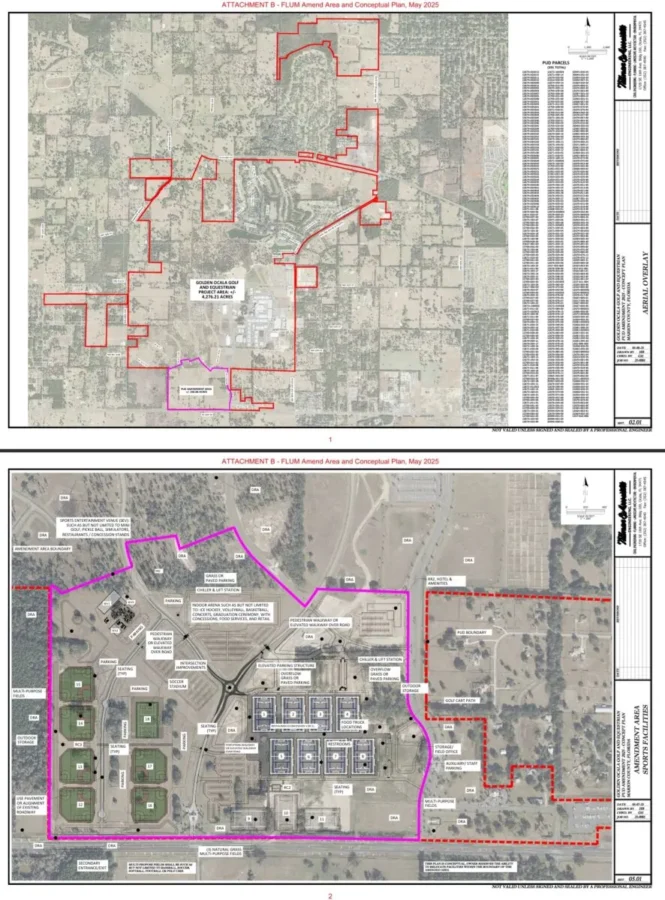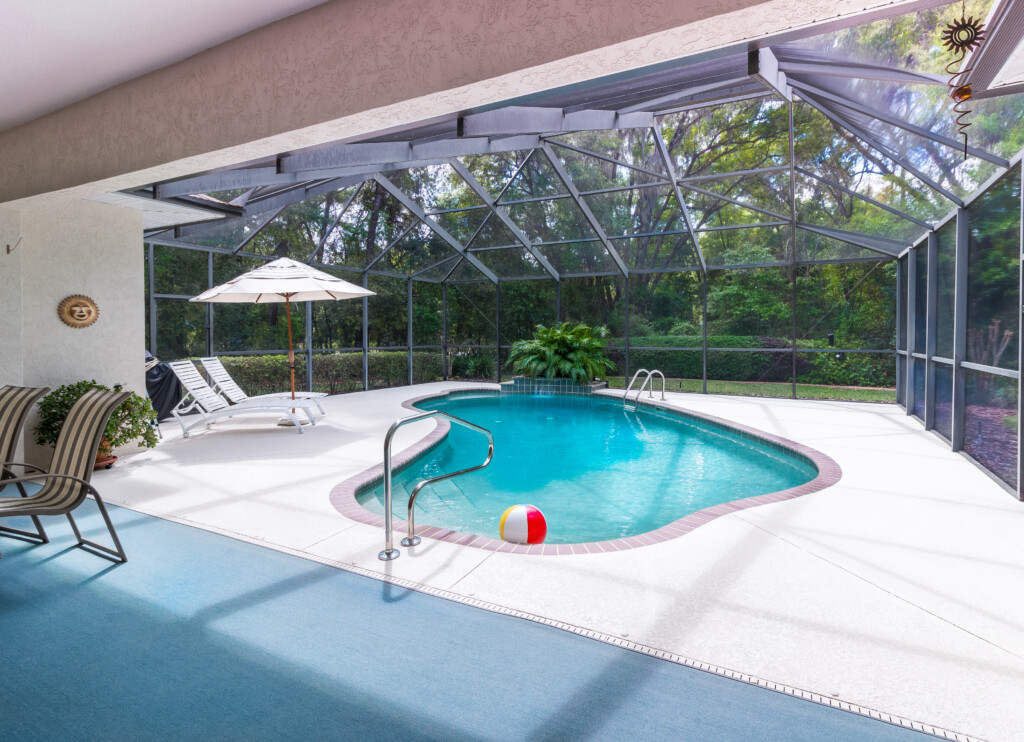
WEC Sports Complex Sparks Ocala Overdevelopment Debate
Is Ocala Facing "Overdevelopment”? A Deep Dive into the WEC Sports Complex
When a developer proposed to rezone 236 acres of land at the World Equestrian Center (WEC) in northwest Ocala — land originally designated for low-density, equestrian estates — alarms immediately went up.
What was once intended for large lots, polo fields, and horse farms could instead become a massive sports and entertainment hub. The question on many locals’ minds: is this more overdevelopment?
In this post, we’ll walk through what was proposed, the pushback, and why “overdevelopment in Ocala” is fast becoming more than just a legal phrase — it’s a real concern for residents, farmers, and planners alike.
What’s on the Table? The WEC Sports Complex Proposal
According to Ocala Gazette reporting, the proposed “Sports at WEC” development aimed to convert a southwest parcel of the WEC PUD (originally planned for residential/equestrian use) into:
- Eight synthetic turf multipurpose fields for soccer, football, lacrosse
- Three natural turf soccer/lacrosse fields
- Six synthetic multipurpose baseball / softball fields
- A championship soccer field with expanded seating
- An indoor facility featuring:
- Two full-sized ice rinks
- Eight full basketball courts (expandable to 16 volleyball courts)
- A synthetic turf indoor soccer pitch
Support amenities:
- Two restaurants
- Concession and restroom buildings
- Field maintenance structures
Lodging & event settings: A hotel, site for food trucks, and the possibility of hosting concerts and large gatherings
What makes this shift significant is that the land targeted for this project was previously locked into a plan for low-density equestrian estates, not heavy commercial or entertainment use

Land-Use Shift & Broken Promises
In 2017, when WEC’s PUD was approved, the southwest parcel was earmarked for large, equestrian-friendly residential estate lots.
The proposal sought a text amendment, a rezoning, and a modification of the PUD to allow this far more intense usage. Many critics viewed this as a “bait and switch” — turning land promised to residents and horse farms into a commercial sports complex.
Horse Farms Forever (HFF), an organization committed to protecting local horse farms, argued these changes violated earlier agreements, and threaten the Farmland Preservation Area that borders WEC.
They warned of incompatible land uses, noise, traffic, and a dilution of the rural equestrian character of the region.
Traffic, Infrastructure & Environmental Strain
One of the most cited objections involved traffic. The county’s Traffic Engineering Division flagged this development as likely to generate 2,926 new daily vehicle trips (a 131% increase over existing usage), and 494 new afternoon peak-hour trips (223% jump) in already congested corridors along State Road 40.
Further concerns included:
- Overburdening nearby roadways and intersections
- Noise propagation interfering with equestrian operations
- Environmental impacts from increased runoff, lighting, and impervious surfaces
- Potential weakening of protections on adjacent farmland
Stakeholders: Who Supported It — and Who Fougt Against It & Latest Update
Support
WEC proponents argued that the complex would serve not just equestrians but families, athletes, concertgoers, out-of-town visitors, and the general community. They said a more robust set of recreational amenities could boost economic activity and broaden WEC’s appeal beyond horse shows.
Recent letters published in the local media showed some recent Ocala transplants supported expansion for its promise of sports and entertainment options.
Opposition
Horse Farms Forever (HFF) is vocal and organized in its resistance. They argued the development sits in the wrong place, that the land should stay committed to its original purpose, and that allowing such commercial use erodes the rural and equestrian identity of the area.
Neighbors, local farmers, and some county officials raised alarms about inconsistency with the Comprehensive Plan, impact on property values, and the fairness of bending zoning rules for one major developer.
Ultimately, the sports complex project was unanimously approved in July of 2025 and has advanced in the regulatory process.
Most recently, the Florida Department of Commerce has formally objected to Marion County’s proposed comprehensive plan amendment that would enable the WEC sports complex, citing inadequate supporting data and concerns about public facilities, infrastructure, and water supply.
The county now faces a choice: adopt the amendment as written, adopt a revised version with changes, or reject it entirely — and must hold a second public hearing within 180 days of receiving Commerce’s report (received Oct. 3, 2025).
This intervention raises the stakes for everyone involved — developers, county officials, and especially nearby homeowners — because it underscores that the approval process isn’t guaranteed and that the debate over “Ocala overdevelopment” is far from over.
How Overdevelopment Impacts Ocala Homeowners and Sellers
From a real estate perspective, the ripple effects of large-scale projects like the proposed WEC sports complex can be significant. Many long-time residents are questioning how Ocala overdevelopment could affect property values, neighborhood appeal, and overall quality of life.
Homeowners who once chose this area for its open land, peaceful surroundings, and equestrian charm now face uncertainty about increased traffic, noise, and changing land use.
For sellers, this shift could influence both buyer demand and market perception—some buyers may see proximity to new amenities as a plus, while others view it as a reason to look elsewhere for quieter living.
In either case, understanding how zoning changes and infrastructure expansion can alter local property dynamics is essential for anyone deciding whether to sell now or hold for future appreciation.
If you have any questions about local real estate values, or if you are thinking of buying or selling a home in the greater Ocala area, please contact Ann-Marie Bortz with the Keyes Company today at 352-405-1663.
Ann-Marie Bortz, Realtor
Ann-Marie is a real estate agent in the Greater Ocala, Florida area with over 2 decades in the business. She is a veteran of the United States Air Force and her clients know her as a go-getter and pro-active agent specializing in the luxury market.


You May Also Like

4 reasons millennial homebuyers are here to stay
October 11, 2015tips on how to get your listings online
October 11, 2015